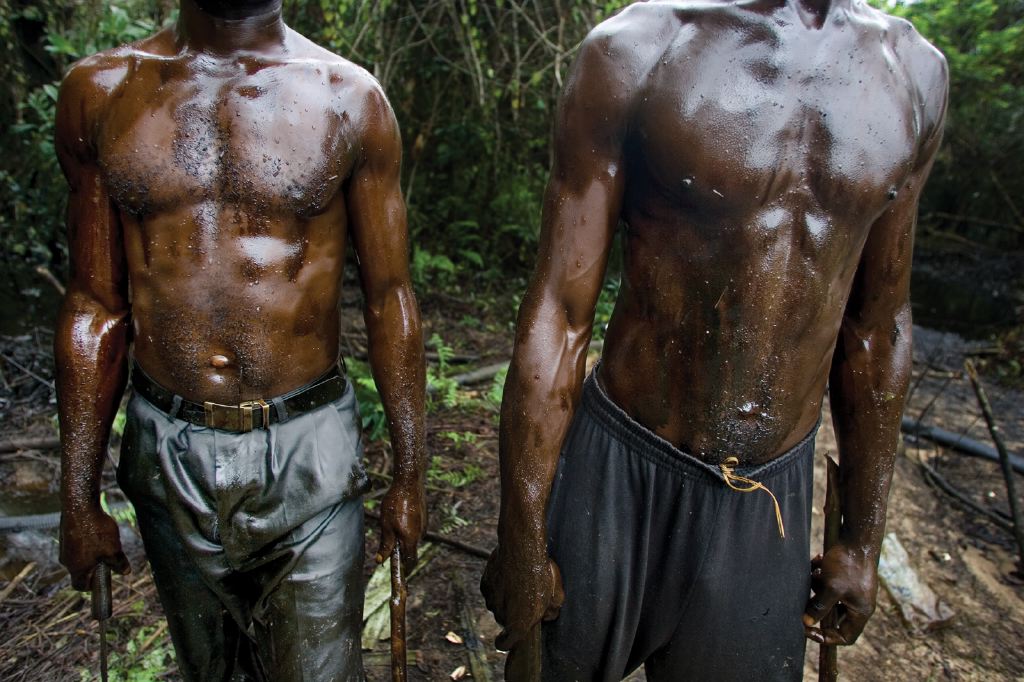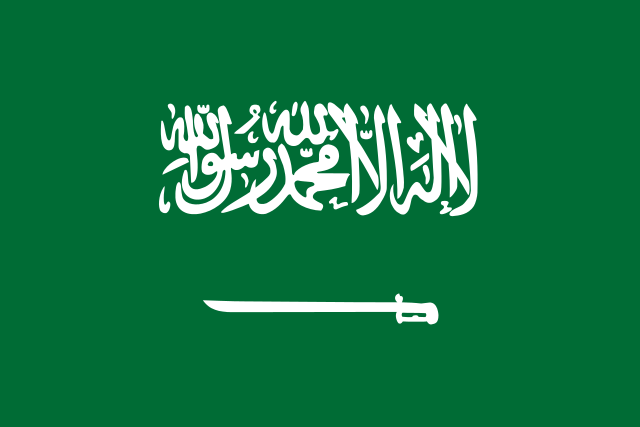The United States gets over 40% of its oil from the Niger Delta region. We get more oil from Nigeria than from Saudi Arabia. But there’s a lot of oil being pumped that’s never making it to any refinery because instead it’s ending up smothering the landscape across the region, which is always slick with oil, as I wrote in June…
How much is being spilled or is leaking? Well, right now there are about 300 incidents a year, and that has added up over the decades.
One report, compiled by WWF UK, the World Conservation Union and representatives from the Nigerian federal government and the Nigerian Conservation Foundation, calculated in 2006 that up to 1.5m tons of oil – 50 times the pollution unleashed in the Exxon Valdez tanker disaster in Alaska – has been spilled in the delta over the past half century. Last year Amnesty calculated that the equivalent of at least 9m barrels of oil was spilled and accused the oil companies of a human rights outrage.
According to Nigerian federal government figures, there were more than 7,000 spills between 1970 and 2000, and there are 2,000 official major spillages sites, many going back decades, with thousands of smaller ones still waiting to be cleared up. More than 1,000 spill cases have been filed against Shell alone.Last month Shell admitted to spilling 14,000 tonnes of oil in 2009. The majority, said the company, was lost through two incidents – one in which the company claims that thieves damaged a wellhead at its Odidi field and another where militants bombed the Trans Escravos pipeline.
While still images coming out of the region are shocking enough, intrepid Current TV correspondent Mariana van Zeller went into the Delta to get video footage of the literally omnipresent oil slicks and spewing wellheads, as well as to interview locals.
While rebels or other individuals damaging pipelines to steal or disrupt oil may be a problem, as the oil companies claim and the Western media dutifully repeats, one local Ogoni activist tells her simply that “the greatest problem we have is that these facilities are too old” and they just corrode away and start gushing oil into the surroundings. And in fact he believes that the violence against the oil companies and the government is probably a result from, not a cause of, the many crude spills. The organization he works for helped bring down the Nigerian dictatorship in the 1990s, ushering in a new, ostensibly more democratic era, and yet they still face the same problems from the oil, which is killing their people. The military government was unresponsive and often downright cruel, as my background post explored, and in some ways this aspect has improved under democracy, but “security” thugs hired by Shell and the other offenders continue to deter local efforts to seek justice. (I want to note that my post was at one point apparently being circulated on an internal corporate server of Shell Oil, according to my site statistics data.)
We made a huge deal out of the large multi-month oil leak in the Gulf of Mexico — and rightfully so — but we as a nation don’t bat an eye over the reality that Nigeria’s delta people have been experiencing what is tantamount to a pervasive, multi-decade oil slick in the same supply chain that is attempting to slake America’s oil thirst and led to that smaller oil catastrophe in our marine back yard. (Yes there was actually less oil going into the Gulf this summer than has been spilled almost continuously in the past five decades in the Niger Delta region!) But these days, as is often the case, it is “un-American” to question our consumer demands and resulting detrimental overseas policies, to suggest that we might be causing well-founded distrust and dissatisfaction from our fellow global citizens, or to propose that we alter the status quo to improve the lot of others and thereby secure ourselves.
1.5 million tons of oil spilled over a half century. God bless our SUVs, every one.
This post originally appeared on Starboard Broadside and was featured by Boston.com.




